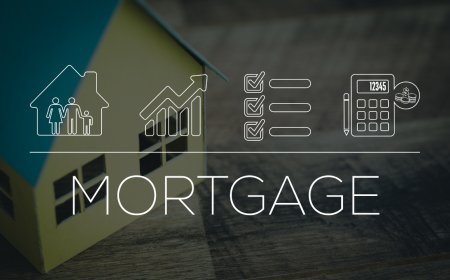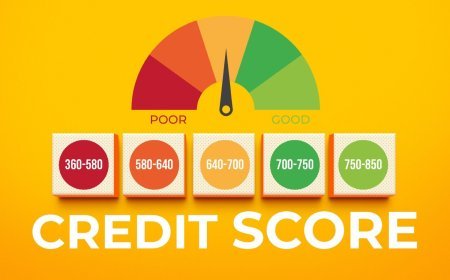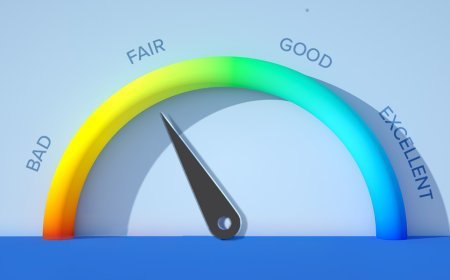Debt Consolidation Explained: Pros and Cons
Learn how debt consolidation works and whether it's right for your situation. Understand the benefits, risks, and alternatives to consolidating debt.

Debt consolidation combines multiple debts into a single payment, potentially simplifying your financial life and reducing costs. However, consolidation isn't a magic solution to debt problems and requires careful evaluation to determine if it's appropriate for your specific situation.
Debt consolidation works through several methods. Personal loans provide lump sums to pay off existing debts, leaving you with one fixed monthly payment. Balance transfer credit cards move high-interest debt to cards with promotional 0% rates. Home equity loans or lines of credit use your home's value to secure lower-rate financing for debt payoff.
The primary benefits include simplified payment management with one monthly payment instead of multiple bills with different due dates. Interest savings can be substantial when consolidating high-rate credit card debt into lower-rate loans. Fixed payment schedules provide predictable budgeting and clear payoff timelines, unlike minimum credit card payments that extend indefinitely.
Potential cost savings depend on your current debt structure and available consolidation options. Consolidating $20,000 in credit card debt at 20% APR into a personal loan at 10% APR saves approximately $2,000 annually in interest charges. Over five years, this represents $10,000 in savings plus faster debt elimination.
However, consolidation carries significant risks that many borrowers underestimate. The primary danger is treating symptoms rather than root causes - if overspending habits don't change, you may accumulate new debt on top of consolidation loans, doubling your debt burden. Many people find themselves worse off within two years of consolidating.
Qualification requirements vary by consolidation method. Personal loans typically require credit scores of 650 or higher for competitive rates, stable income verification, and debt-to-income ratios below 40%. Balance transfer cards often require excellent credit scores above 700. Home equity options require substantial home equity and stable employment history.
Costs associated with consolidation can erode benefits if not carefully calculated. Personal loans may charge origination fees of 1-6% of loan amounts. Balance transfers typically cost 3-5% of transferred balances. Home equity loans involve closing costs similar to mortgages. Calculate total costs including fees to ensure net savings.
Consider alternatives before committing to debt consolidation. Debt management plans through nonprofit credit counseling agencies can reduce interest rates and payments without new loans. These plans typically take 3-5 years and may impact credit scores less than multiple late payments or defaults.
The debt snowball or avalanche methods attack existing debts systematically without new borrowing. These approaches require discipline but avoid qualification requirements and fees associated with consolidation loans. Success depends on your ability to maintain motivation and avoid new debt accumulation.
Bankruptcy provides legal debt relief for overwhelming situations where consolidation won't solve fundamental problems. While bankruptcy severely impacts credit scores, it offers fresh starts for people drowning in unsustainable debt loads. Consult bankruptcy attorneys if debt levels exceed 40% of gross income with no realistic payoff scenarios.
Evaluate your specific situation honestly before pursuing consolidation. Calculate total debt levels, minimum payments, and realistic payoff timelines under current terms. Consider whether payment reduction or interest savings justify consolidation costs and potential risks. Assess your spending habits and commitment to avoiding new debt.
Success with debt consolidation requires lifestyle changes and spending discipline. Create detailed budgets that maximize debt payments while meeting essential expenses. Eliminate unnecessary spending categories and redirect savings toward accelerated debt payoff. Consider closing credit cards to remove temptation, though this may temporarily impact credit scores.
Monitor progress regularly and adjust strategies as needed. Track how consolidation affects your overall financial picture including credit scores, total debt levels, and monthly cash flow. Celebrate milestones to maintain motivation during long payoff periods. Consider professional financial counseling if you struggle with spending control.
Timing matters for consolidation applications. Apply when your credit score is strongest and income is stable. Avoid consolidation during job transitions or major life changes that might affect your ability to qualify or repay. Consider market conditions for interest rates, especially for variable-rate consolidation options.
Understand long-term implications of different consolidation methods. Personal loans provide fixed terms and eliminate debt on specific dates. Home equity options offer lower rates but put your home at risk and may extend repayment periods significantly. Balance transfers require discipline to pay off balances during promotional periods.
Debt consolidation can be an effective tool when used properly by disciplined borrowers facing temporary debt management challenges. However, it's not appropriate for people with fundamental spending problems or overwhelming debt loads relative to income. Honest self-assessment and possibly professional counseling help determine whether consolidation or alternative approaches better serve your long-term financial health.
What's Your Reaction?
 Like
0
Like
0
 Dislike
0
Dislike
0
 Love
0
Love
0
 Funny
0
Funny
0
 Angry
0
Angry
0
 Sad
0
Sad
0
 Wow
0
Wow
0









































